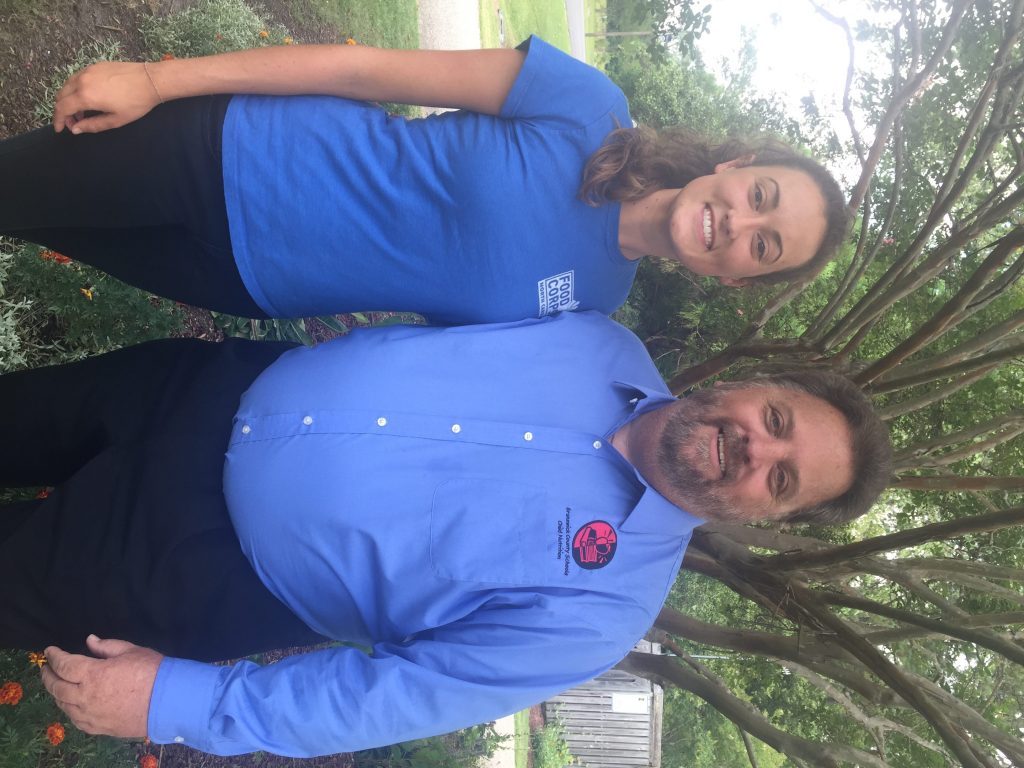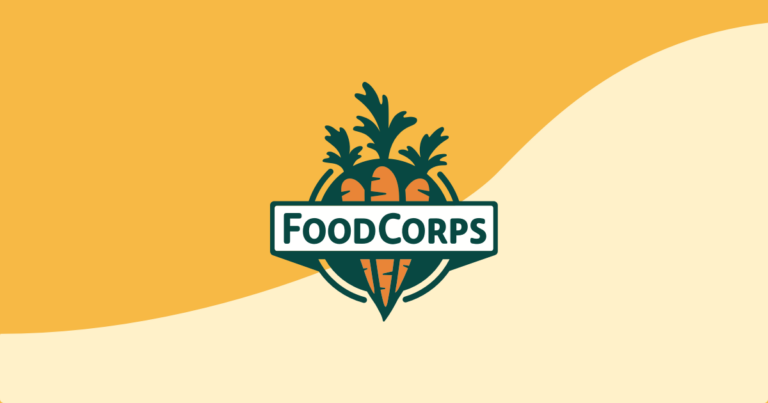Child Nutrition Directors and the Importance of Partnership
Child Nutrition Director Robert Parker has been with FoodCorps from the beginning, first in Warren County, NC and now in Brunswick County, NC.
Child Nutrition Director Robert Parker has been with FoodCorps from the beginning, first in Warren County, NC and now in Brunswick County, NC.

FoodCorps jumped into its sixth year of service earlier this month, and we’ve made some exciting changes. Some things haven’t changed a bit, though. We’re still growing veggies with kids and giving them opportunities to fall in love with them, and we’re still partnering with many of the folks that have been with us from day-one.
Robert Parker is one of these folks who has been around since the beginning. When FoodCorps first started, he was the Child Nutrition Director for Warren County, one of North Carolina’s northeastern FoodCorps sites. He collaborated with the service member in Warren County to get local cabbage and collards onto the school lunch menu. He recently moved down to Brunswick County, the southeastern county that I serve, and we’ve been able to partner on several farm to school projects throughout my service. I caught up with Robert one afternoon in his office to talk about his involvement with farm to school programming and how FoodCorps is helping him connect kids to healthy food in schools.
AE: In your opinion, why is it important to be doing farm to school?
RP: I think it’s extremely important to do farm to school for our children who are not aware of where our food comes from and some of the healthy nutritious items that are available to them. I think that our children, through marketing and lack of education, are eating way too many fat and sugary items, getting away from the basics. Farm to school provides us an opportunity to provide [those basics] for our children as well as use some of our local fruits and produce, so it’s a win-win. It’s good for schools. It’s good for kids. It’s good for our economy and our farmers.
AE: How do you think FoodCorps, specifically, has enhanced your work—in farm to school or just in school nutrition in general?
RP: They’re another tool for us to use. They come in and provide excellent folks that do the education part for us. They provide one-on-one attention that a lot of times we don’t have the manpower or the resources to do. It’s an excellent opportunity and partnership between FoodCorps and the district.
AE: How has having a FoodCorps service member helped push your work forward?
RP: The resources that I’ve had in other districts with FoodCorps has allowed us the opportunity to get our voice heard, not only at the local level but at the state level as well. The good information and experiences that we’ve had, we’ve shared throughout the nation. I think any time we get a chance to talk about good, healthy foods for our children is a positive, and I’ve had great experiences with the folks that I’ve worked with in FoodCorps.
We started in Warren County before I came here to Brunswick. We started a collard and cabbage co-op, where we actually had our farmers GAP (Good Agricultural Practices) certified. We developed a market for them throughout eastern North Carolina, and it was very beneficial for schools because we got that good, healthy, dark-green vegetable in collards. We also got cabbage which came directly from the fields directly to our tables. It’s sometimes difficult, especially for small farmers, to be able to afford to get into a bigger market, so I think that’s been a real positive for the county. Here in Brunswick County, we’re looking to do something similar to that. We’ve already started the process of getting some of our farmers in the area GAP certified and we’re hoping to kinda duplicate what they’re doing in Warren County and possibly even do some things that maybe they haven’t had the opportunity to do.
AE: Do you think all of these things would have been possible without FoodCorps?
RP: I don’t think so. In Warren County we were very fortunate to have a FoodCorps member by the name of Caroline, and she was actually the driving force behind it. She got the information for the GAP certification. She worked very very closely with the farmers and actually got three of our farmers GAP certified. She was involved with from day one all the way through. Her efforts were instrumental in making it happen.
We’ve got an excellent one here too with yourself, Amber, I think you’re doing a great job with working with Cooperative Extension. A lot of times you have resources that maybe we don’t have, and you have some additional time to work one on one with farmers and the community. Working with schools sometime limits the additional time I have to work with the community. I think that FoodCorps comes in as another tool, another area of understanding and time that schools sometimes don’t have.
AE: Do you think kids are more likely to eat it if they make that connection?
RP: Yes! Absolutely. I think when you identify with something —- doesn’t matter what age you are —- when you identify it and know something about it you’re more prone to take the opportunity to eat it. Like with collards, in going back to Warren County, I was a little apprehensive. Even though collards are a “southern” food I didn’t know if a lot of my children had eaten them. When we brought collards in with a little bit of recipe changes and a little bit of promoting it went over great! I know I keep going back to collards but one of the vegetables that research found that schools need is that dark green vegetable, and that quickly met our needs and was EXCELLENT. We’re hoping that this project in Brunswick County as well as with the one in Warren County can get collards across North Carolina and possibly even outside our state.
AE: What do you think the biggest challenge is for you as a child nutrition director in trying to integrate more farm to school programing into your work?
RP: North Carolina [Department of Agriculture] has a good farm to school program. I think my biggest challenge is getting local produce. I think that our children need to see food that’s grown right here in Brunswick County or in the southeast region, so they can identify it when they’re going down the road. When they look out and see a field of collards, they know what it is.
I think our children have gotten further away from the farm as we’ve went to more processed food. I know growing up when I’d go spend some time with my grandmother we ate right out of the garden, and I don’t know how often you hear children say that any more. We’ve got fewer and fewer family farms, and I think when the farm to school program identifies and works with smaller farms that is a plus. And if we can do it locally, you can bring those farmers into schools so that children recognize that this is farmer “Ted” who grows all the tomatoes or blueberries or strawberries that we serve.

FoodCorps’ Statement on House Vote to Cut SNAP Funding

FoodCorps Announces Rachel Willis, Longtime Educator and Board Member, As President

FoodCorps Frustrated by Cancellation of Farm to School Grants, Another Blow to Local Food